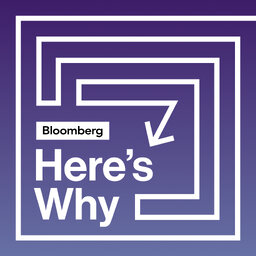EVs and Climate Change and the Paparazzi Economy
We discuss the effectiveness of electric vehicles on climate change goals with Romesh Ratnesar of Bloomberg Opinion, and also dig into the exodus from New York City with columnist Justin Fox. Opinion's Lisa Jarvis joins to talk about social media's affect on adolescent mental health, and columnist Allison Schrager discusses the new paparazzi economy. Amy Morris hosts.
In 1 playlist(s)
Bloomberg Opinion
Deeper conversations on the week's most significant developments. Tune in and join in!Social links
Follow podcast
Recent clips

Introducing 'Here's Why' - Complex News Stories Explained
00:30

Airline Mergers and Restaurant Loyalty
35:20

Fossil Fuel Use and Drug Development
35:28
 Bloomberg Opinion
Bloomberg Opinion